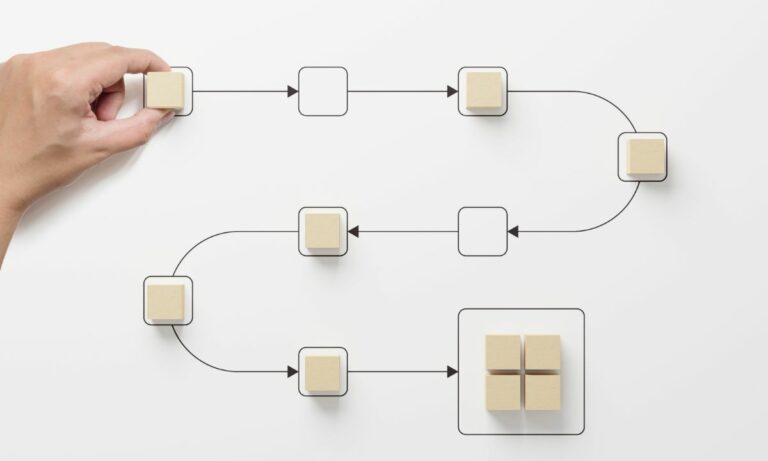Leading enterprises around the globe are recognizing the importance of sustainable production practices not just for the environment, but for their bottom line as well. However, implementing these practices can be a daunting task, especially without the right tools and frameworks in place. This is where Business Process Management (BPM) comes into play. BPM, especially when automated, can significantly transform and optimize these practices, making them more efficient and effective.
The Relationship Between BPM and Sustainable Production
The core principle of BPM is the optimization of business processes to make them more efficient and effective. When applied to sustainable production practices, BPM can help enterprises identify and eliminate waste, streamline operations, and improve resource utilization. This not only reduces the environmental footprint of the enterprise but also boosts its operational efficiency and profitability.
Moreover, BPM allows for better control and visibility over the production processes. This means enterprises can closely monitor their operations to ensure they are adhering to sustainable practices and are in compliance with relevant regulations. This level of transparency is crucial in today’s business landscape where consumers and stakeholders are increasingly interested in the environmental impact of businesses.
However, manual BPM can be labor-intensive and time-consuming. This is where automation comes in. Automated BPM, like the solutions offered by Flokzu, can significantly reduce the time and effort needed to manage and optimize business processes. This leaves enterprises with more resources to focus on their core operations and strategic initiatives.
How BPM Transforms Sustainable Production Practices
Now that we understand the relationship between BPM and sustainable production, let’s delve into how BPM can transform these practices. The first step is the identification and analysis of the existing processes. This involves mapping out the processes, identifying areas of waste or inefficiency, and determining potential areas for improvement.
Once the processes have been analyzed, the next step is to redesign them for efficiency and sustainability. This may involve adopting new technologies or practices, retraining staff, or changing the organizational structure. The goal is to ensure that the processes align with the enterprise’s sustainability goals and objectives.
After the processes have been redesigned, the next step is implementation. This is where automation can be a game-changer. Automated BPM tools like Flokzu can streamline and simplify the implementation process. They can automate routine tasks, monitor the processes in real time, and provide actionable insights for continuous improvement.
The Benefits of Automating BPM for Sustainable Production
Automating BPM for sustainable production offers numerous benefits. Firstly, it reduces the time and effort required to manage and optimize the processes. This leads to cost savings and improved operational efficiency. Secondly, it provides real-time visibility into the processes, allowing for prompt identification and resolution of issues. This improves the reliability and effectiveness of the processes.
Furthermore, automated BPM supports continuous improvement. It provides valuable data and insights that can be used to further optimize the processes and drive innovation. This helps enterprises stay competitive in the ever-evolving business landscape.
Lastly, automated BPM supports regulatory compliance. It ensures that the processes are in line with the relevant regulations and standards, reducing the risk of penalties and reputational damage. Moreover, it provides documentation and audit trails, simplifying the compliance process.
Conclusion
In conclusion, BPM, especially when automated, plays a crucial role in transforming and optimizing sustainable production practices. It provides the tools and frameworks needed to analyze, redesign, implement, monitor, and improve the processes. This leads to improved efficiency, cost savings, regulatory compliance, and ultimately, a more sustainable and profitable enterprise.
Implementing BPM for sustainable production requires a reliable and robust solution. Flokzu offers a comprehensive and user-friendly BPM solution that can be tailored to the specific needs of your enterprise. To learn more about our offerings and pricing, feel free to reach out to us.
Automate your first process for free with Flokzu and experience firsthand the transformative power of automated BPM for sustainable production. You’ll be surprised at the impact it can have on your operations and bottom line.






























